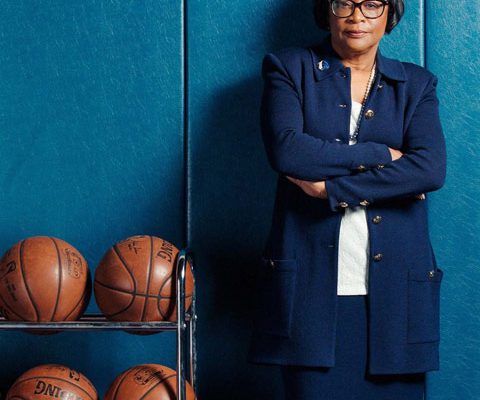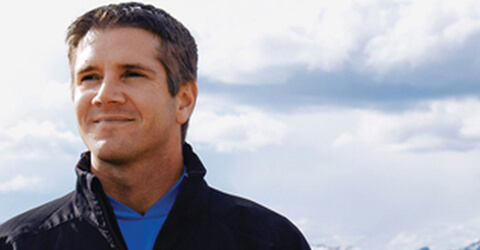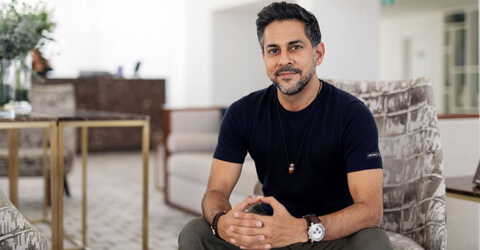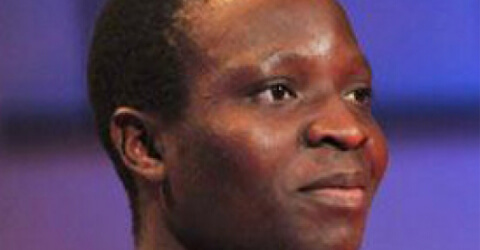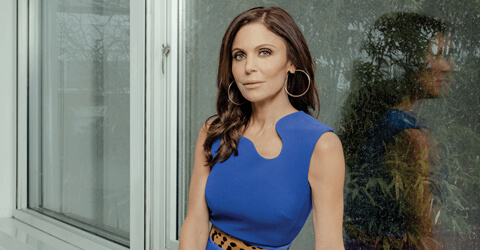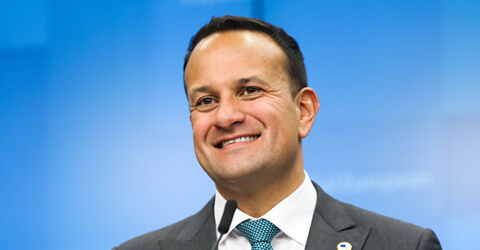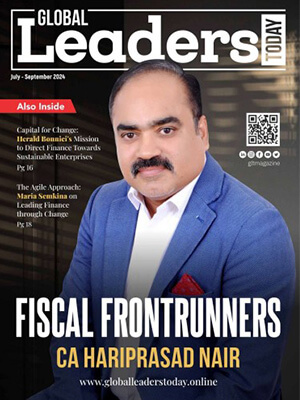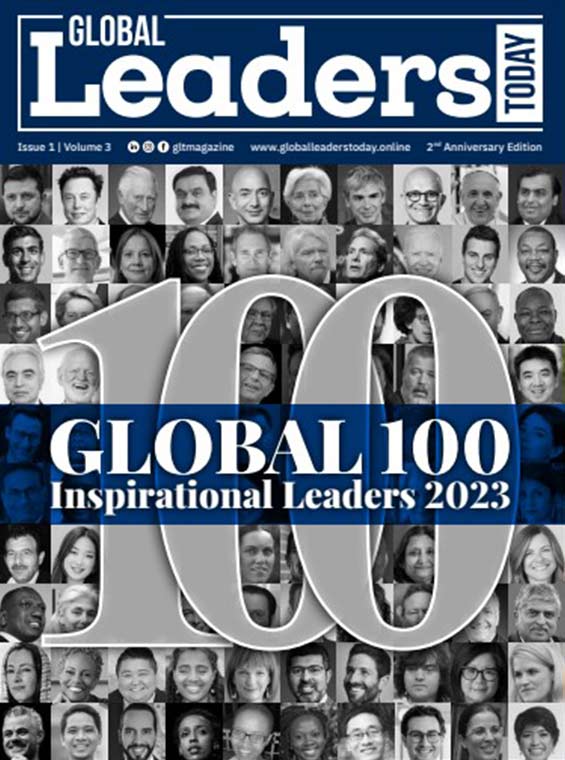- The Modern CFO Mindset: CA Hariprasad Nair on Collaboration, Innovation, and Growth
- Old Dog, New Tricks: Digitalising Age-Old Trade Finance Documents
- Tokenization: The NextGen of Global Financial Markets is Digital
- Capital for Change: Herald Bonnici’s Mission to Direct Finance Towards Sustainable Enterprises
- The Agile Approach: Maria Semkina on Leading Finance through Change
Category: Featured Profiles
Alex Stephany is the CEO and Founder of Beam, the first platform in the world to crowdfund homeless people for employment training and support them into skilled work to start their life again. Beam has won several awards, including Best Financial Inclusion Startup in Europe from MIT and Best Tech for Good in Europe. Stephany is an expert on the sharing economy and has authored a book called The Business of Sharing, published by Macmillan in 2015.
Alex Stephany started his career as a Corporate Lawyer at Clifford Chance LLP and later moved into Management Consultancy. However, he wasn’t happy working as a Management Consultant and started seeking new opportunities and chanced upon the tech sector.
He was in the process of starting a marketplace for independent retailers (much like Trouva). But he was presented with an incredible offer at a VC-backed startup, JustPark, to be their COO, which he instantly accepted to accelerate his learning curve. JustPark is an innovative solution to the 21st-century parking woes. It generates millions of pounds annually for property owners by renting out their parking spaces to people in the vicinity who cannot find any parking space. Simultaneously, its web and mobile applications provide cheap parking to over half a million drivers.
A year later, Stephany got promoted to CEO and led JustPark’s equity crowdfunding campaign to raise £1 million on CrowdCube. It was one of the biggest crowdfunding campaigns for a tech startup at the time, reaching a whopping £3.5m. Stephany recalled, “I remember thinking ‘what if we could use this power of crowdfunding for social good?’ That idea found an outlet several years later in Beam.”
Stephany is a big advocate for social issues. “I was raised with this idea that if you are in a position to give back, it is something that you should be doing, it is not this kind of, nice thing to do, it is a real responsibility and an obligation,” said Stephany.
He soon reached a point in his career where he became adept with tech skills and started seeking ways in which technology could be adapted to address rampant social issues.
The idea of Beam was born when he became friends with a homeless man by the Tube station. Stephany recalled, “He was a man I walked past if I am honest, a load of times. But one day, I stopped to say hello, and he told me he would sit on the steps by my Tube station because there is CCTV, which made it less likely that he’d be attacked. I would bring him cups of coffee, and I would bring him pairs of socks when I knew he was getting cold, and one time he just disappeared. When he reappeared, he looked terrible and I said: What happened, where have you been? And he shrugged to say that he was at a hospital after having suffered a heart attack.”
The encounter left a profound impact on Stephany who instantly began searching for ways he could help the homeless people in the vicinity. He decided that he wanted to empower them in a way that would allow them to lead self-sufficient and independent lives. He decided that the best way to achieve this outcome was to help them develop skills that would get them absorbed into the workforce.
He began doing his research and spent a considerable amount of time working with homeless people and engaging and interacting with numerous charities that help homeless people. After having conducted his research, his statistics showed that for every homeless person on the street, there are at least 5 people living in homeless hostels, women’s refuges, and different types of emergency accommodation. Stephany said, “So it is a huge group of people, more than a quarter of a million strong in the UK, without the opportunities they deserve.”
Beam was officially launched in 2017; the organization crowdfunds new career opportunities for homeless men and women, provides them with a support network, and raises funds from kind strangers to financially pay for their skill training and development.
Stephany recalled the first person whose life they had transformed, “The first person we supported is a man called Tony. Like the overwhelming majority of homeless people in the UK, he lived in a homeless hostel so he had a roof over his head but a real lack of opportunity. I met with him and told him about Beam. He didn’t say anything for the entire meeting, apart from at one point when he said: ‘I don’t understand. Why would anyone help me?’ It was a real punch-in-the-stomach moment when I realised that one of the key problems faced by the long-term unemployed is a lack of confidence and belief, even though there are millions of people who would want to support them.”
Stephany continued, “I explained that I thought people would care but I couldn’t make any promises, and he trusted me enough to say he’d give it a shot. We went to see some electrical training providers who said they would teach Tony to become an electrician if we could get the money together, and we built his campaign. I picked up the phone to a number of journalists, who started writing about us, and Tony’s campaign was funded within about a month. Since that moment, we’ve supported more than 160 homeless people.”
Beam uses technology to find scalable solutions to the most challenging social problems – starting with homelessness. By donating to Beam, members of the public are supporting a homeless person for the long term.100% of donations are used for charity purposes through their unique model, which sees their overheads funded separately by philanthropists and foundations.
In conclusion, he says, “Everyone at Beam is an optimist, otherwise, we wouldn’t be working on these problems. And I think that people have an inherent desire to help to alleviate suffering, and that’s part of being an emotionally functioning human. It makes us happy to do that. It releases oxytocin and other chemicals that make us feel good, that’s why we like doing work that matters and that is purposeful.”
In the dazzling and glamourous world of fashion magazines, Radhika Jones made a remarkable debut. After getting the Editor-In-Chief position in 2017 at Harper’s Bazaar, she moved the magazine away from...
Cynthia Marshall has broken down barriers and made waves her entire life while battling through various challenges. Marshall is the first Black woman to lead an NBA team, currently serving as the CEO of...
Sean Swarner is the only person in the world to endure two life-threatening cancer types. After defeating the dreaded disease, he climbed all seven summits and skied to the North & South pole with...
Vishen Lakhiani is a Malaysian entrepreneur, author, and motivational speaker of Indian descent. He is the founder and CEO of Mindvalley and the author of two books: The Code of the Extraordinary Mind and...
Whitney Wolfe Herd is well-known for her bold decisions and stance, and it has reflected in her business ideas as well. She started the dating app Bumble, where women get to make the first move over...
William Kamkwamba is a Malawian inventor and author. He gained popularity when he built a wind turbine to power multiple electrical appliances in his family’s house in Wimbe, using blue gum trees,...
From Entrepreneurship to Event Planning and Reality TV, Bethenny Frankel has done it all. She is a breath of fresh air with her unapologetic take on life and unique perspective in a world of mediocrity....
Leo Varadkar is Ireland’s youngest, openly gay and ethnic minority former Prime Minister. He’s manoeuvred Ireland to become Europe’s fastest-growing economy and stared Brexit bravely in...
Dr Peter Diamandis is avant-garde in the fields of innovation, commercial space, and sustainability. He is best known for being the founder of XPRIZE Foundation that uses competitions to innovate new...








